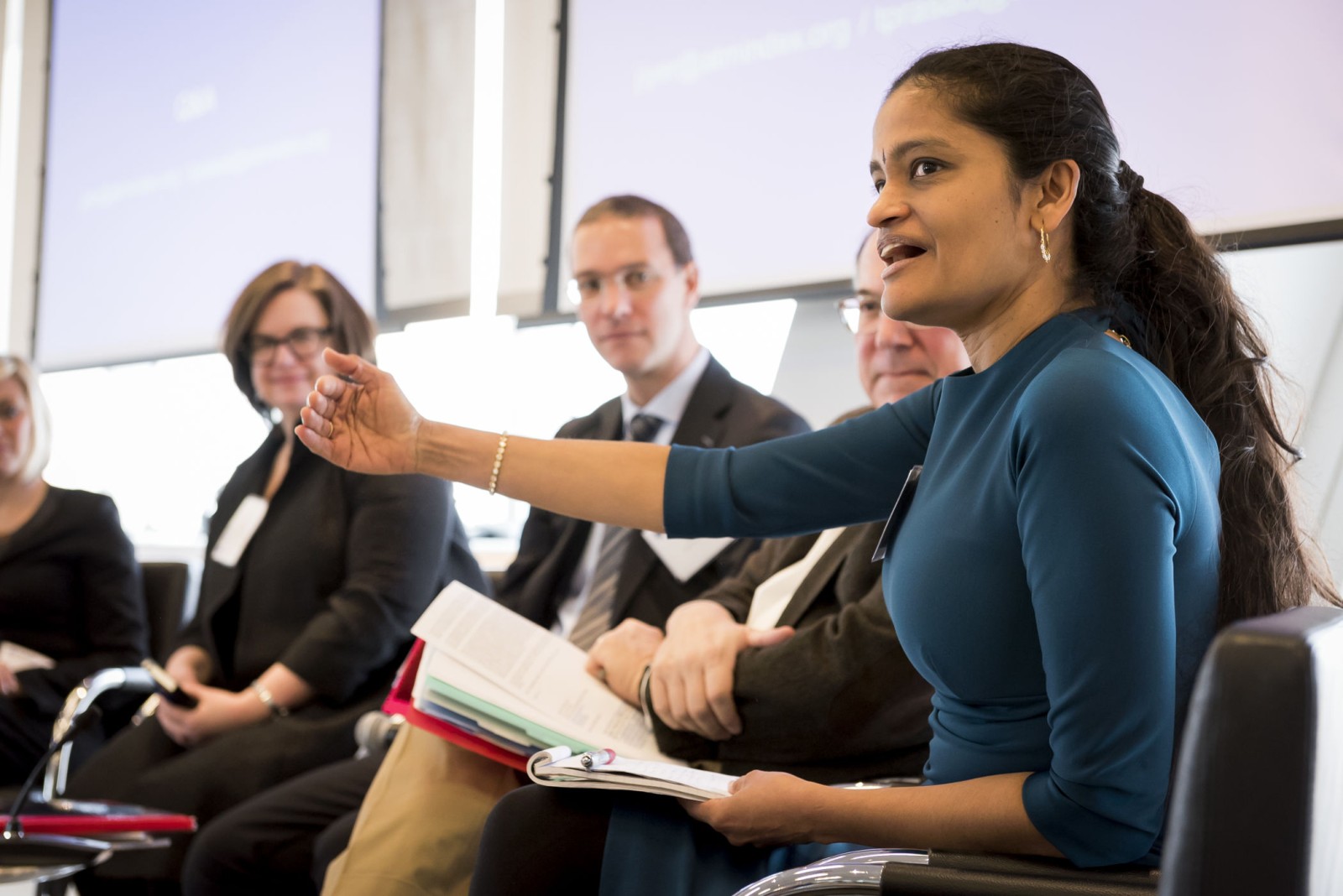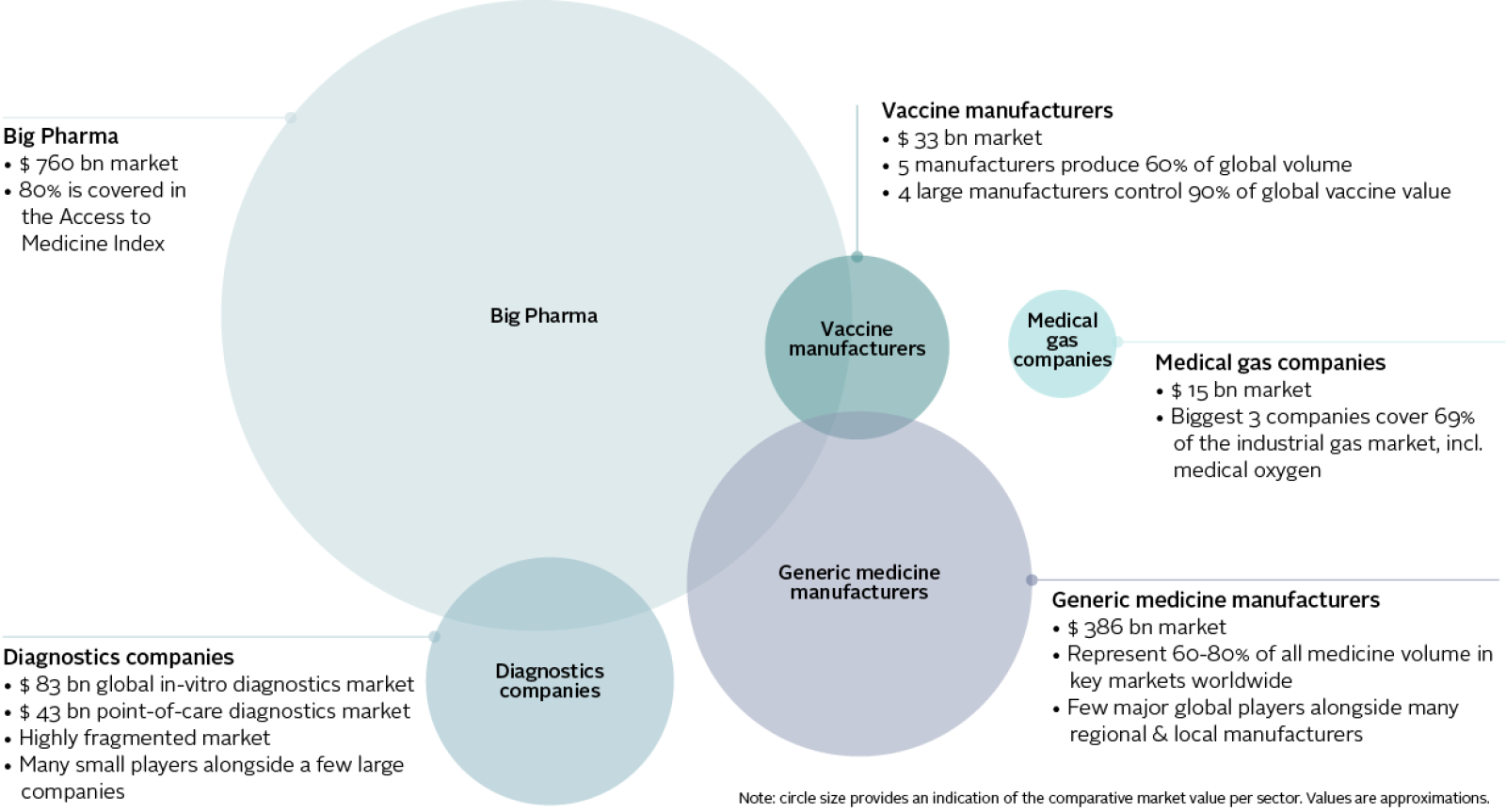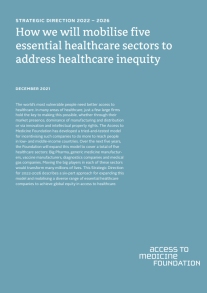Taking access to the next level: mobilising five essential healthcare sectors
The Foundation has built up a successful model for incentivising and stimulating pharmaceutical companies to do more to improve and save lives in poorer countries.
This approach will now be used to mobilise the most important companies across five essential healthcare sectors: generic medicine manufacturers, vaccine manufacturers, diagnostics companies, medical gas companies, and Big Pharma.
Unequal access to essential healthcare has led to the avoidable loss of life on a vast scale. Actions by a handful of the key companies in each sector would save millions of lives.
People living in the world's poorest countries are missing out on access to vital healthcare. The COVID-19 pandemic has made the extent of this crisis abundantly and undeniably clear – laying bare acute issues of access to medicines, vaccines, and other essential health products such as medical oxygen. There is an unacceptable gap between the "haves" and the "have-nots" which must be closed.
That is why, as we go forward, the Access to Medicine Foundation will be applying our tried-and-tested 'model for change' more widely. In many areas of healthcare and pharmaceuticals, just a few large firms hold the key to turning access into a reality. It is only by mobilising those diverse companies that we can solve these chronic issues at the scale necessary to truly change people's lives in low- and middle-income countries.
The Foundation's model has been shown to work in the case of Big Pharma, as demonstrated by the success of the Access to Medicine Index, which is now followed closely in boardrooms around the world. Our model can have a powerful impact on the healthcare supply chain as we leverage it to its fullest extent.
From 2022 to 2026, the Foundation’s scope will expand to cover a total of five healthcare sectors: Big Pharma, generic medicine manufacturers, vaccine manufacturers, diagnostic companies and medical gas companies.

Jayasree K. Iyer, CEO, says: "We will not solve the scale of access issues without bringing a more diverse group of companies to act, and keeping them committed to stay on course. I am excited about our new strategic direction, and welcome collaborators and allies to solve wide gaps in healthcare equity affecting the most vulnerable populations, such as women and children."
The importance of these sectors, and how the Foundation has interacted and will interact with each of them, is outlined below – with full details in the Foundation's Strategic Direction 2022-2026, now available online.
Twenty of the world’s largest research-based pharmaceutical companies are covered by the Access to Medicine Index. Progress has been seen since the Index was first launched in 2008, but there are key areas for improvement – such as access planning and investment in R&D.
These companies possess the adaptive R&D capability and large-scale manufacturing capacity to supply billions of much-needed medicines to poorer countries. Several of the world’s largest generic medicine manufacturers have already been tracked by the Foundation’s antimicrobial resistance (AMR) research programme and Benchmark, but they will now be examined and analysed on their performance in more therapeutic areas.
Vaccine manufacturers have a critical role to play in ensuring that immunisation reaches people living in low- and middle-income countries. A tailored and specific approach is required to the vaccine manufacturing sector in order to create positive action.
Diagnostics and monitoring devices are an essential element of the health system and a critical part of the continuum of care for patients. However, there is a lack of joined-up strategy for realising the potential of diagnostic testing in lower-income countries. This is a new area of focus for the Foundation.
The COVID-19 pandemic has highlighted a chronic crisis in medical oxygen supply with lethal results for many patients, such as children with pneumonia. This should have been tackled long ago and now needs to be tackled as a matter of urgency. The Foundation convened key stakeholders in 2021 to address immediate problems, and will now work longer-term to help medical gas companies address the wider issues.
The Foundation will use a combination of data, rankings, report cards, industry benchmarking, advocacy, recognition of best practice, and stakeholder engagement in order to trigger critical changes. This established approach, which has the backing of leading voices in access to medicine, involves making the case for far-reaching change not only to companies, but also to investors, governments, multilateral organisations and the wider public. All of these groups have a crucial role to play in shifting access policies and practices.
Jayasree says: "In each of these five sectors, there are a few dominant players that can have a big impact on healthcare in low- and-middle-income countries, whether through their market presence, dominance of manufacturing and distribution, or via innovation and intellectual property rights. Moving those key companies in each of these sectors will transform many millions of lives."
The Foundation will seek to bring a critical mass of companies to the table across each of the five essential healthcare sectors. Central to these efforts will be a focus on driving access at scale, and on the continuum of care, i.e. ensuring that all aspects of healthcare are available to patients worldwide – from prevention through to diagnosis, treatment, and aftercare.
Visualising the five overlapping healthcare sectors

Getting these big healthcare players to step up is central to improving global access through equitable and affordable supply, and will be a vital element in meeting the UN’s Sustainable Development Goals (SDGs) and its push for universal healthcare by 2030.
The Foundation’s solutions-oriented approach and its unique ability to convene all stakeholders to address pressing and chronic issues will be needed more than ever in the wake of the COVID-19 pandemic as the global health community prepares for future challenges, shocks and pandemics, and contends with rising problems such as drug resistance.
The world has learnt from bitter experience that developing new medicines, vaccines, diagnostics and other treatment tools is not enough; these vital healthcare products must also reach those who need them most.
We plan to exploit our mechanisms of action to move Big Pharma more systematically and rapidly, while expanding our work to encompass these additional sectors. This will enable us to be a catalyst to transform the healthcare ecosystem for the better.
Work has already begun. We would now like to invite those involved in each of these sectors – from pharmaceutical companies and manufacturers, to governments, procurers and investors – to engage with us, whether that means coming together for the first time, or deepening a longer-standing connection with the Foundation. In this way, key opportunities for change can be created – and taken.
